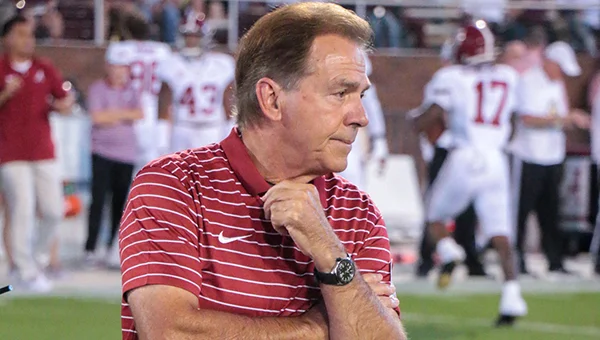FOREVER IN OUR HEART: Bamas coach has a breaking heart for the lost of his….

Jumbo Package: Alabama coaching staff analyzes the quarterback competition.
The Texas Longhorns, in 2021, justified their decision to leave the Big 12 for the Southeastern Conference by stating, “Don’t blame us, we’re just following the money.”
The Oklahoma Sooners echoed this sentiment, explaining that they were merely following Texas’s lead in pursuit of financial gains.
The SEC defended its acceptance of Texas and Oklahoma, asserting that when a program like Texas expresses interest, it’s natural to respond positively, despite the potential impact on the Big 12.
ESPN, while denying responsibility, did so unconvincingly in the eyes of many.
In 2022, the USC Trojans announced their move from the Pac-12 to the Big Ten, citing financial incentives and referencing Texas’s earlier actions as a catalyst.
The UCLA Bruins, following USC’s lead, explained that financial constraints influenced their decision to switch conferences.
The Big Ten, in accepting USC and UCLA, acknowledged that alliances in college sports are subject to change, potentially affecting conferences like the Pac-12.
Fox, similar to ESPN, attempted to distance itself from blame without entirely convincing observers.
Ultimately, the blame for these shifts in college sports alignment is multifaceted. The NCAA, particularly under Mark Emmert’s leadership, failed to provide strong guidance, contributing to the chaotic landscape driven by financial motives, administrative decisions, competition, and escalating financial interests.
In this complex scenario, a combination of factors, including financial pressures, leadership failures, and competitive dynamics, led to significant realignments, highlighting the challenges faced when money and influence collide in collegiate athletics.








